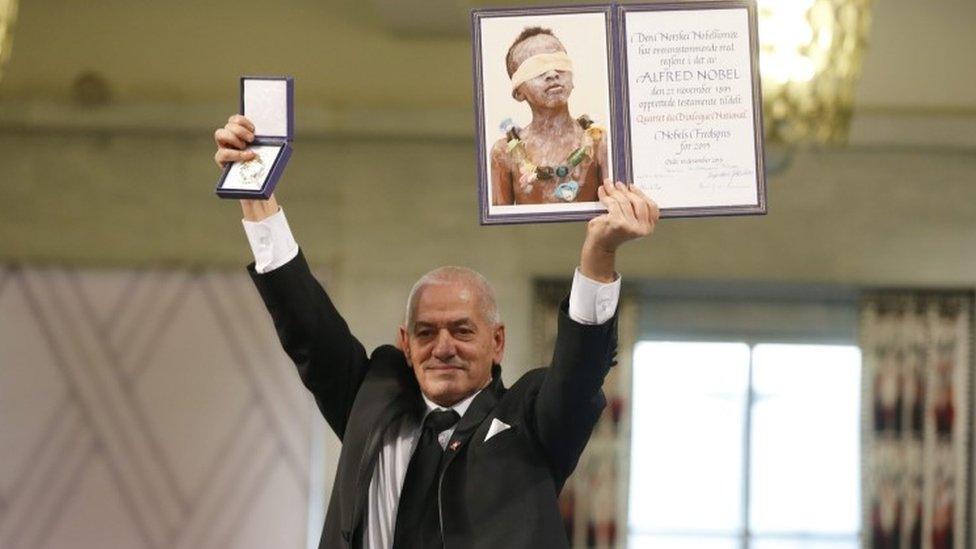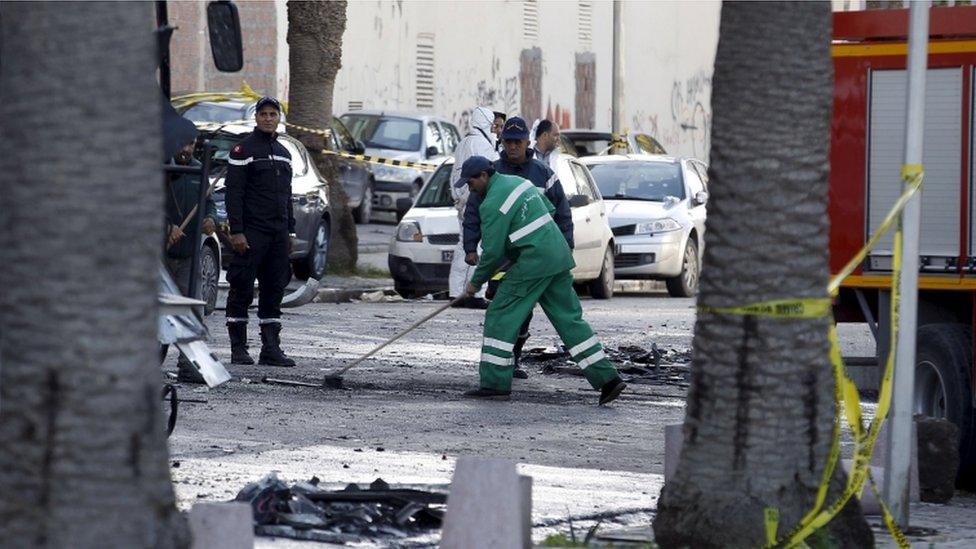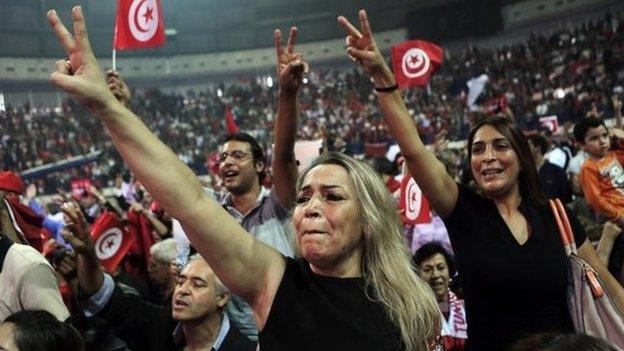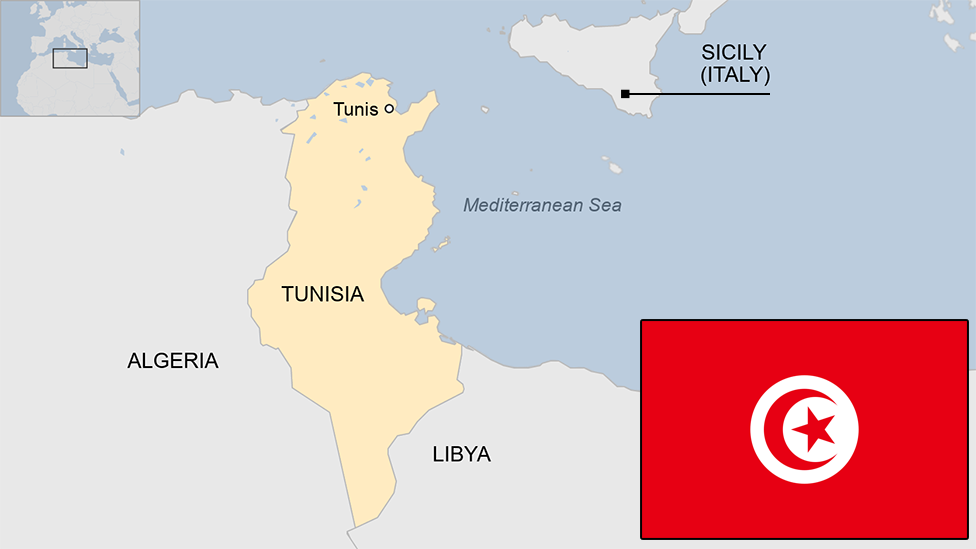Tunisian Nobel Peace Prize winners 'set world example'
- Published

Trade unionist Houcine Abassi collected the medal on behalf of the Tunisian General Labour Union
Tunisia's Nobel Peace Prize winners have set a global example that conflict can be avoided though dialogue and tolerance, the Nobel committee said.
The Tunisian National Dialogue Quartet received the prize on Thursday.
Nobel committee chairperson Kaci Kullmann Five said the Quartet helped pull the country back from civil war in 2013, external.
It is credited with creating a dialogue between the country's Islamist and secular coalition parties.
The Quartet, made up of the country's key labour, legal, human rights and business organisations, was formed in 2013 at a time when the revolution that overthrew President Zine el-Abidine Ben Ali in 2011 appeared to be unravelling.
It brought the different sides together and showed that Islamist and secular groups "can negotiate with one another to reach solutions in the country's best interests", the Nobel committee said.
Trade unionist Hassine Abassi, lawyer Mohamed Fadhel Mahfoudh, human rights activist Abdessatar Ben Moussa and business representative Ouided Bouchamaoui collected the award at a ceremony in Norway's capital, Oslo.
In December 2014 Beji Caid Essebsi was elected president following a peaceful vote that was held under a new constitution approved in January that year.
But the country is still facing security problems, particularly from Islamists over the border in Libya.
Tunisia has been rocked by two major terror attacks this year alone - on Tunis's renowned Bardo Museum in March in which 22 people were killed, and on the resort of Sousse in June in which 38 tourists were killed.
The Nobel committee said there are "dark forces" which do not want Tunisia to succeed.
- Published7 December 2015

- Published19 November 2014

- Published9 October 2024
